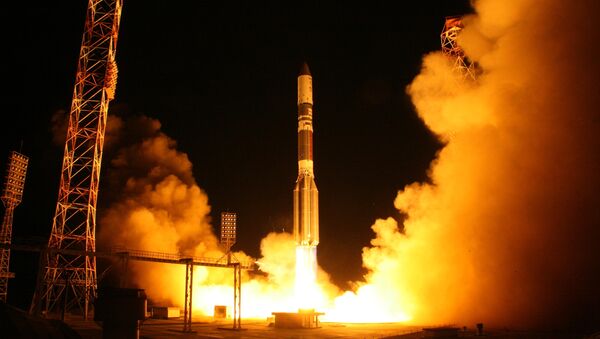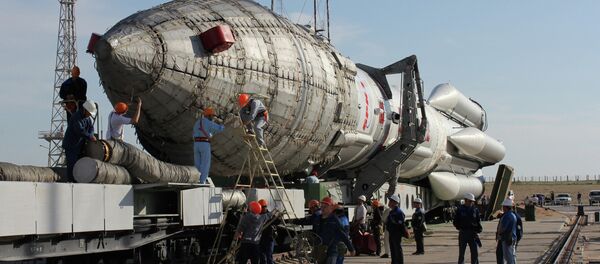MOSCOW (Sputnik) – The launch of the Proton-M carrier rocket, the first since the May accident, has been successful, a representative of Russian space agency Roscosmos told RIA Novosti early on Saturday.
"Proton-M, which was launched on August 28 from the Baikonur [space center in Kazakhstan] at 14:44 Moscow time, launched into orbit the Inmarsat-5F3 satellite on August 29 with the help of the Briz-M upper stage," the representative said.
The British telecommunications satellite was put into a so-called supersynchronous orbit, nearly double the 22,400-mile altitude that similar devices operate on.
The Proton-M is the largest carrier rocket in Russia's fleet of space launch vehicles. The rocket has lifted dozens of Russian-made and foreign satellites since it was first launched in 2001.
On May 16, a Proton-M carrier rocket was to deliver the Mexican MexSat-1 satellite into orbit, but shortly after launching, the rocket lost its telemetry with Earth and later burned up in the atmosphere upon reentry.
The failed launch was the latest of seven Proton carrier rocket failures over the past five years.
Roscosmos head Igor Komarov said in May that Russia was not planning to give up on the use of Proton-M rockets despite the malfunctions.



